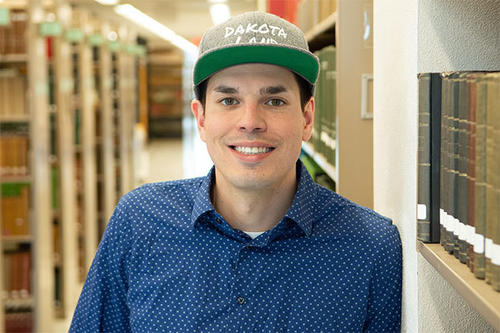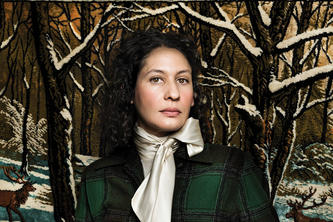
As US soldiers returned home from fighting the Vietnam War, they faced numerous challenges. Physical injuries, post-traumatic stress disorder, limited GI benefits, and infamously poor treatment from opponents of the war made it difficult to resume life as a civilian.
American Indian veterans were no exception to these struggles, but they did experience something few other veterans met when they returned to their communities: support, rather than scorn.
“Vietnam is interesting because it was such an unpopular war,” says John Little, a fourth-year PhD student in history and American Indian studies at the University of Minnesota’s College of Liberal Arts (Twin Cities) and a member of the Standing Rock Sioux Tribe.
“In Indian Country, though, Native veterans are really put on a pedestal. You’d potentially given your life for your community, and that’s acknowledged when you go home,” says Little.
For many, fighting in wars is a tradition that has been carried on through lineage, with Vietnam veterans’ relatives having fought in the Korean War, World War 2, and World War 1.
Little is building his dissertation around Native American veterans’ experiences during and after Vietnam—how they were viewed, perceived, and treated, both on the front lines and at home. Through his research, he aims to provide new perspectives on this piece of history, which has often omitted Native accounts.
A lot of Native veterans stories tell of how they, like other veterans, faced insults and ire after returning from Vietnam. Once they arrived home to their Native communities, however, they were celebrated. Their communities sang honor songs for them and praised them at banquets, powwows, and local events. That positive reinforcement, Little believes, helped Native veterans in working through their injuries and trauma to resume their lives in the civilian world.
“For Native people, you see a lot of veterans coming to their communities and pushing tribal sovereignty, helping with health care, and helping with education on their reservations and communities,” he says. “While some were no doubt struggling with PTSD and other issues, they were still building up their communities. That’s something I’ve been trying to highlight.”
By this fall, Little aims to finish his dissertation and begin a new role as director of the Indian University of North America summer program at Crazy Horse in South Dakota. The program helps Native American students make the transition from high school to college and gain college credits along the way.
He says his time at the U of M has expanded his interest in pushing back against stereotypes and bringing Native perspectives to light.
“History has not been kind to Native people in the past,” says Little. “I think what a lot of people in Native studies are doing now is coming up with different frameworks to see history through.”
- Categories:
- Arts and Humanities




